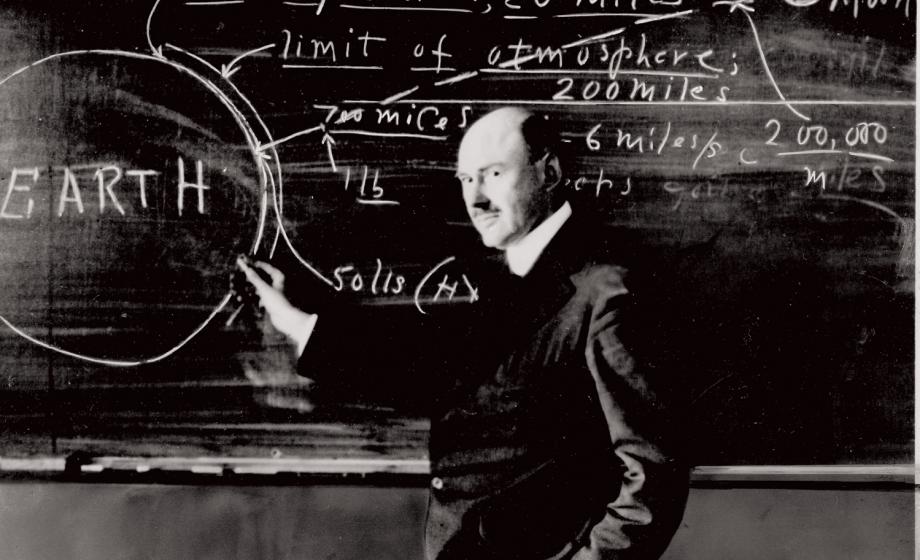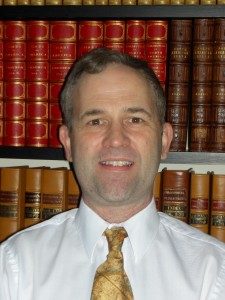
Mott Linn, head of collection management at Clark University’s Robert H. Goddard Library, recently delivered a keynote talk on the “Father of Modern Rocketry” to an audience deeply attuned to the results of the late physicist’s groundbreaking research: NASA historians and archival employees.

Linn spoke at the annual NASA History Program Review at the Goddard Space Flight Center (GSFC) in Greenbelt, Maryland, where participants shared reviews of historical and archival activities throughout NASA.
“Participants enjoyed some continuing education in the form of four outstanding speakers,” according to NASA’s recap of the May 11 event. Linn “gave a fascinating and insightful presentation on the namesake of GSFC, Dr. Robert H. Goddard.”
Goddard (pictured at chalkboard) is known as the “Father of Modern Rocketry” because all space rockets have parts that he devised as part of his pioneering theoretical and experimental research about rockets and space flight. He conducted that research at Clark University, where he was a professor from 1914 until shortly before his death in 1945.
Clark’s Goddard Library houses Goddard exhibit artifacts and the physicist’s official papers, notebooks, diaries, news clippings and more. The documents are available in archival and digital form in the Archives and Special Collections section.
In his position at the library, Linn oversees a budget of more than $2.25 million. He is president of the Academy of Certified Archivists for 2015-2016, and he also has served the Society of American Archivists as a member of the steering committee of the College and University Section from 2002 to 2005. He is the immediate past chair of the Archival Management Roundtable. Linn earned his doctorate in library administration and management from Simmons College.
At the NASA event, chief historian Bill Barry presented an overview of the state of the NASA History Program. Other speakers included Dave Williams, head of the National Space Science Data Center, and NASA legend Frank Cepollina, associate director of the Satellite Servicing Capabilities Office. On staff at GSFC for 53 years, Cepollina recalled career highlights, such as inventing the tools for the Hubble Space Telescope repair missions.
In addition, the group heard from Nobel laureate John Mather, currently senior project scientist for the James Webb Space Telescope. Mather shared insights from his life story as well as his views on the importance of history and archival work for the future of humanity.


